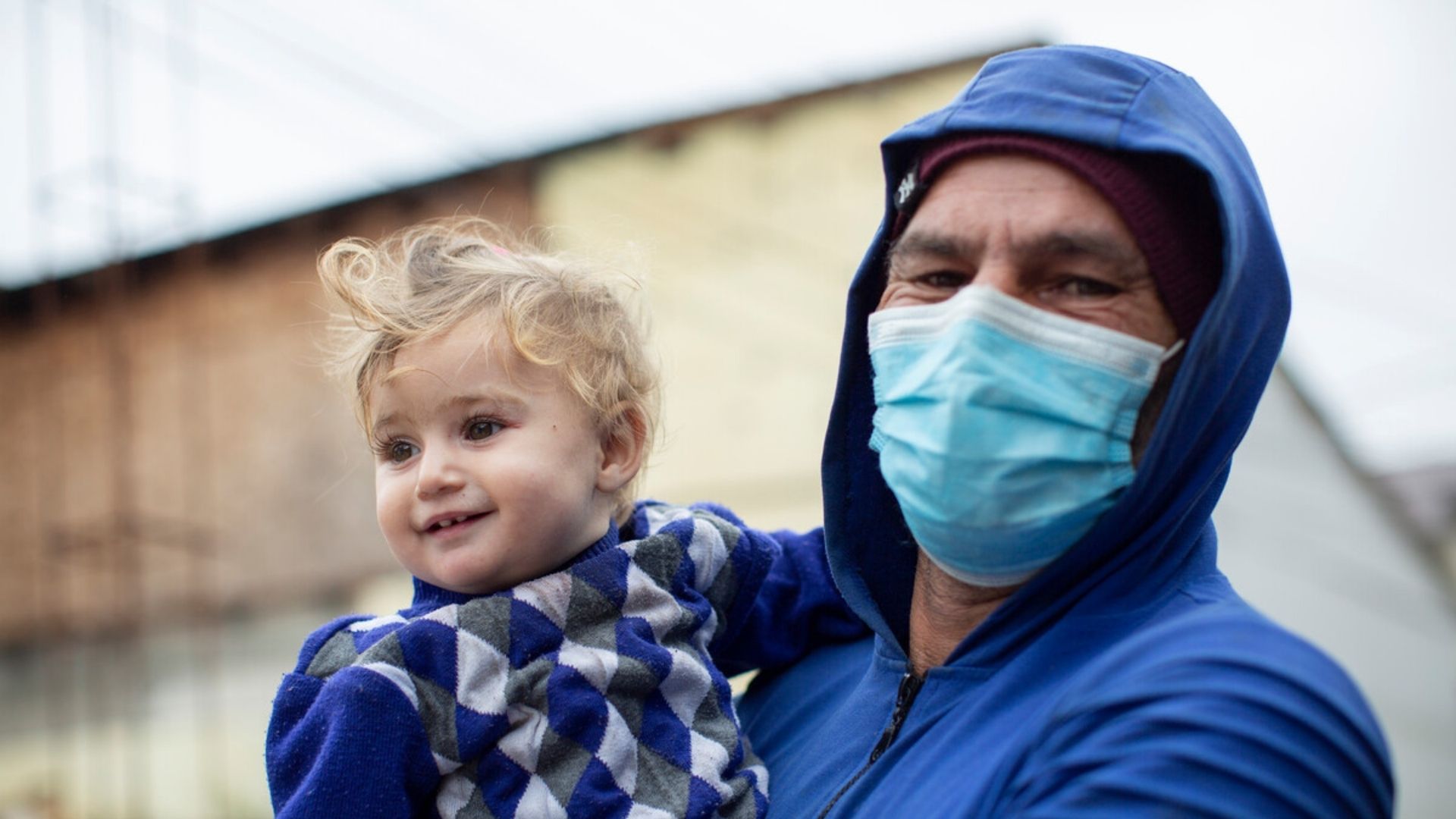“If the children are not enrolled in school and if your living conditions don’t improve, we have no other option but to put all children in a local placement centre,” said the representative from the Child Protection Department (CPD) upon visiting the family.
“It was a clear warning. I was there, I heard it first-hand,” remembers Andreea, our social worker, of her meeting the Mihăescu family back in February 2021. “It made my heart skip a beat. Almost reflex-like, I covered Federica’s ears when he said it. I knew the family’s situation needed rapid improvement, but I wasn’t ready for this. Certainly, not then, not that quickly.”
At the time, all six children and both parents were living in just one nine-square-meter room. Somehow, two tattered beds and a small table managed to fit in. Ion used to work in construction as a day labourer, but, after lockdown and with construction sites being on and off, he couldn’t find work. Cristina was taking care of the children, particularly the newborn. She used to work for a drycleaner, but was now at home nursing Gabriela, with minimum pay. Her low salary and the children’s social benefits – that’s all there was. And that was supposed to be enough for baby food, diapers, meds, food for the entire family, and clothes. How can that be enough? It simply wasn’t. The Mihăescus were living without electricity or access to any other utilities: no heat, no gas. They got water from a nearby well.
The Mihăescus were living without electricity or access to any other utilities: no heat, no gas. They got water from a nearby well.
“I had to propose a plan to the Child Protection Department,” Andrea explains. “We’ll help with improving the living conditions and with enrolling the kids in school. ‘Will that work as a rapid intervention?’, I asked. Luckily, they were on board.”
The CPD and the local City Hall helped with enrolling all the children in school. Only Federica had ever gone to school, but she had dropped out. She wanted to go back. “What would I wear? I don’t have any shoes,” she said.
We started by getting the family basic staples: food, clothing, and hygiene items. With no electricity there was no fridge, so we focused on canned items, flour, oil, and cornflower. We were in crisis mode, basically. The bare minimum, for starters. And then shoes and clothing for the kids.
We then focused on bringing electricity in. It took two months, but the family has electricity now. We bought a fridge, a washing machine, and a wood-burning stove. For the first time, there was heat inside the home. A makeshift roof covered the fridge and the washing machine. But not for long. We bought construction supplies, bricks, cement — everything that was needed to build another room.
“Ion did everything. He was a brick mason, a carpenter, a roofer, a concrete finisher, depending on what was needed,” says Andreea. He kept repeating, “Ma’am, I’ll do whatever it takes, just don’t let them take our kids away.”
Soon enough, we had two rooms. Ion goes to school, too, as part of a government-funded programme for adults who had dropped out of school. Construction sites are back on, so he’s out working every day. Gabriel, the oldest son, works alongside Ion on weekends. Cristina will return to her job when Gina turns two.
“We wouldn’t have made it without you,” says Cristina. “God bless you. I would never let go of my children.”
There’s still work to be done: we need to bring plumbing inside the home and new furniture for the two rooms. We want to ensure the children stay in school. They still need our support, especially around those moments when any family spends a bit more than usual. When schools started, for example, we helped with supplies, notebooks, pens, and backpacks. Or now, around the holidays, a bit of help is still needed.
“We wouldn’t have made it without you. God bless you. I would never let go of my children”, says Cristina.
Support our work Always families, never orphanages
Every child deserves the chance to grow up in a loving, stable family.
